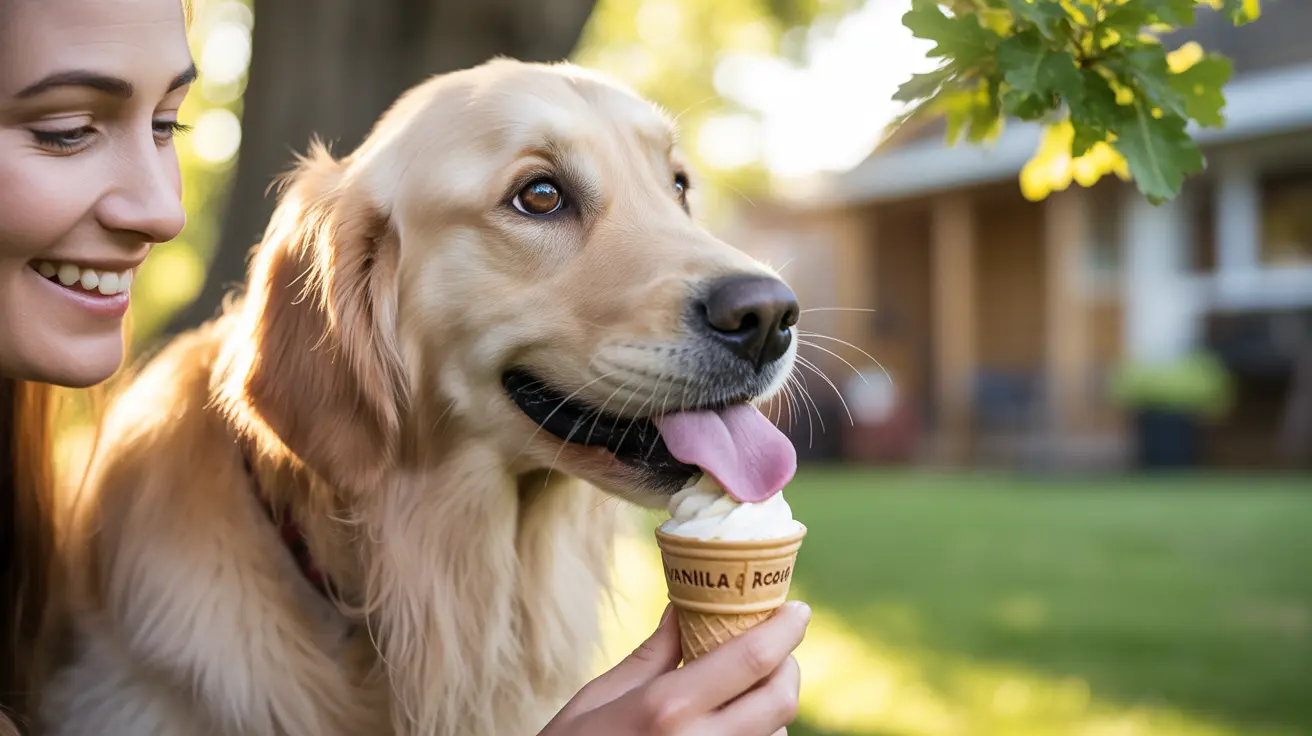As pet owners, we often want to share our favorite treats with our furry friends. When it comes to vanilla and vanilla-flavored treats, it's crucial to understand what's safe and what could potentially harm your dog. This comprehensive guide will help you make informed decisions about vanilla products and your canine companion.
From ice cream to vanilla extract, we'll explore the various forms of vanilla that dogs might encounter and provide clear guidance on what to avoid. We'll also discuss safer alternatives that allow you to treat your pet without compromising their health.
Understanding Vanilla and Dogs: The Basics
While pure vanilla itself isn't typically toxic to dogs in small amounts, most vanilla products contain ingredients that can be harmful to our canine friends. The key is understanding which forms of vanilla are safe and which should be avoided entirely.
Can Dogs Have Vanilla Extract?
Vanilla extract is particularly dangerous for dogs due to its high alcohol content, typically ranging from 35% to 40%. Even small amounts can cause serious health issues, including:
- Alcohol poisoning
- Severe digestive upset
- Disorientation and confusion
- Difficulty breathing
- In severe cases, organ failure
Can Dogs Eat Vanilla Bean Ice Cream?
While vanilla bean ice cream might seem like a harmless treat, it poses several risks to dogs:
- Lactose intolerance and digestive issues
- High sugar content leading to obesity and dental problems
- Potential harmful additives or artificial sweeteners
- Risk of brain freeze or throat irritation
The Ice Cream Question: Safety and Risks
Many dog owners wonder if sharing a scoop of vanilla ice cream is safe. While a small lick probably won't cause immediate harm to most healthy dogs, regular consumption can lead to various health issues:
- Weight gain and obesity
- Diabetes risk
- Pancreatitis
- Digestive problems
- Dental issues
Signs Your Dog Shouldn't Have Ice Cream
- Known lactose intolerance
- History of pancreatitis
- Diabetes or weight issues
- Sensitive stomach
- Previous adverse reactions to dairy
Safe Alternatives to Vanilla Treats
Instead of risking your dog's health with vanilla products, consider these safer alternatives:
- Dog-specific ice cream treats
- Frozen plain yogurt (if tolerant to dairy)
- Frozen pure pumpkin puree
- Frozen banana slices
- Commercial pet-safe frozen treats
Frequently Asked Questions
Can dogs safely eat vanilla ice cream on hot days?
While a tiny amount might not cause immediate harm, it's better to offer dog-safe frozen treats instead. The risks of digestive issues, sugar content, and potential toxic ingredients make regular ice cream an unsafe choice for cooling down your pet.
How much vanilla ice cream is too much for a dog to consume?
Even a few tablespoons can cause digestive issues in many dogs. The safest approach is to avoid giving any ice cream and opt for dog-specific frozen treats instead.
Why is vanilla extract harmful to dogs, and what are the risks?
Vanilla extract is dangerous due to its high alcohol content. Even small amounts can cause alcohol poisoning, leading to vomiting, disorientation, and potentially severe health complications.
What are some safe alternatives to vanilla ice cream for dogs?
Safe alternatives include specialized dog ice cream, frozen plain yogurt, frozen pure pumpkin, and commercial pet-safe frozen treats. Always ensure any treat is xylitol-free and appropriate for your dog's dietary needs.
Can dogs have vanilla bean ice cream, and what are the health implications?
While vanilla bean ice cream isn't typically toxic, it's not recommended due to its high sugar content, dairy ingredients, and potential for causing digestive issues. The health implications can include obesity, diabetes, and digestive problems.
Conclusion
While the question "can dogs have vanilla?" might seem simple, the answer involves careful consideration of various factors. The safest approach is to avoid vanilla products, especially vanilla extract and ice cream, and instead opt for treats specifically designed for dogs. Always consult with your veterinarian about safe treats for your specific pet, particularly if they have any existing health conditions or dietary restrictions.






